
As I’m in the process of writing a follow-up to what I call my “sexual autobiography,” it’s interesting that while I’m not nearly talking about as much “sex fallout” as before (you’ve got to be having as much sex in order to do that), as I’m revisiting my past and updating readers on it, one word that just keeps on coming up is SAFE.
Honestly, it’s not just sexually where "safe" has become a real theme word for me and how I (now) choose to live. And that’s because, looking back over a significant portion of my life, “safe” was not something that was prioritized because safe wasn’t something that was (consistently) modeled or expressed to me.
And, as I oftentimes say, when you’ve been raised around dysfunction, you tend to do what’s familiar instead of what is actually right — right means what’s good for you, what’s rooted in facts and truth, what’s appropriate, what’s most favorable (beneficial) and what will keep you in solid holistic health.
For something or someone to be safe, they need to, as much as possible, be proactively intentional about keeping you from “harm, injury, danger or risk;” they need to be dependable and trustworthy; they need to (synonyms for "safe") protect you, cherish you, keep you out of danger, shield you, leave you undamaged, uninjured and unhurt. Yeah, to do safe things and be among safe people? That is more than a notion.
As far as romantic relationships, in general, go, check out “This Is How To Feel Emotionally Safe In Your Relationship” when you get a sec. Today, though, let’s talk about what safe sex is all about — because if you think that it only consists of using a condom (which, unfortunately, most folks are failing miserably at even that these days — SMDH), words cannot express how much culture and society have failed you.
Safe sex actually has billions of layers. Over the course of a few moments, I will attempt to merely scratch the surface.
Physically
 Giphy
GiphySo let’s address the most obvious point first: your body. Yeah, I’m pretty sure that whenever you hear the phrase “safe sex,” what immediately comes to mind is birth control, more specifically, bringing a condom into the mix. I mean, to a certain extent, that should be the case because condoms help to prevent unwanted pregnancies and STIs/STDs. And you know what? What’s sad about even this is that even though condoms continue to be one of the most reliable forms of protection, only one-third of men and one-fourth of women actually use them — and even then, not consistently so.
And y’all, you can’t tell me that this doesn’t play a role in reportedly three million unplanned pregnancies, with half of those ending in induced terminations annually. Yes, people, unless you are in a mutually-determined, long-term committed relationship, with some other sort of birth control plan in use (unless you’re currently trying to conceive), WRAP IT UP.
However, physically safe sex also means that you need to be serious about your sexual health in general. For instance, I can’t tell you how many people have told me that they got herpes from someone who either never got tested for STIs/STDs or was asymptomatic, so they didn’t test on an annual basis. Or even beyond sexually transmitted infections/diseases, they ignored side effects from oral birth control or symptoms related to urinary tract infections (UTIs), bladder infections, or tissue ruptures from vaginal and/or anal sex, which led to all sorts of unexpected (some major, some not) health-related complications up the road.
Not to mention how many folks — even grown-ass ones — still fail to acknowledge that there is no such thing as consequence-free oral sex, in the sense that you can get STIs/STDs from those, too (I have shared before that I know a guy who got an STD from receiving head not giving it). Yeah, and don’t even get me started on how sex, when you’re on your cycle, can actually increase your chances of getting some type of sexually transmitted infection or disease.
Bottom line on this one, across all lines, as far as your health is concerned, sex is a BIG DEAL. Humans can be made from the act, and no other activity between two people can say the same.
So, if you’re going to engage, you need to get tested before sleeping with a new partner; you need to stay getting tested every 6-12 months (all the while making sure that your partner(s) are doing the same); you need to use condoms at all times (don’t be out here putting it on right before your partner is going to ejaculate either; pre-ejaculate can surprise you…and not always in a good way); you need to know your body so well that you will notice almost immediately if/when something is different is transpiring with your health — and honestly, you need to try and know someone well enough beforehand so that their character indicates that they wouldn’t want to hurt or harm you on the physical tip anyway.
This brings me to the next type of safe sex that needs to be tackled…
Mentally/Emotionally
 Giphy
GiphyI’m willing to bet my next writing paycheck that if we were to ask every person on this planet who’s had sex with at least three people in their lifetime if they’ve ever been (or at least felt like they’ve been) mentally or emotionally manipulated into copulation, they would say “yes” without hesitation — not just women, men too because the reality is that if you’re using sex as a tool to get what you want, you are being manipulative, and since manipulation is a form of control and being controlled in a relational dynamic is potentially harmful…manipulation is definitely unsafe (check out “Are You Being Manipulated? Are You Manipulative? Here's The Breakdown.”).
So, what are some clear signs that someone is a master manipulator when it comes to a sexual dynamic?
- They gaslight you (cause you to think that your facts and truth about sex aren’t real or are invalid);
- They downplay your feelings, concerns, needs, and/or wants about sex;
- They use guilt or ultimatums to get you to have sex (or a certain kind of sex);
- They make you feel unreasonable for the boundaries and/or principles that you have surrounding sex;
- They give you the silent treatment or cold shoulder if you don’t do what they want (both in and outside of the bedroom);
- They distort the facts about themselves, you, or sex, in general, in order to get their way;
- They start fights when they can’t get their way when it comes to sex.
And hell, that’s just for starters! And before some of y’all want to point your fingers solely at the fellas, let me show you how some of my female married clients manipulate sex: they’re suddenly “in the mood” for it if they did something wrong and they’re trying to find a way to not hold themselves accountable or apologize. As far as how some of my single female clients get down, when they want a particular item, they will offer up sex, hoping that will help them to get it (or get it quicker). Hey, just because these tactics are common, that absolutely does not make them right.
Another way that some people will be mentally/emotionally manipulative with sex is they will “falsely advertise” it. What I mean by that is — say that someone is ready to get engaged or married, and their partner is a bit hesitant because they’re wondering if things will change after jumping the broom. Someone who uses manipulation may offer up a ton of sex to convince their partner that marriage will be complete and utter bliss, only to ration it out after saying, “I do. Happens all of the time.
And here’s the thing about that — as unpopular as it may be to say or hear, not only are you unfaithful to your marriage vows if you promise fidelity and sleep around, you’re also unfaithful if you expect someone to be monogamous when you’re not treating sex as a responsibility in a marriage and aren’t engaging in it (if you’re physically able) on a consistent basis (hey, take it up with Scripture: I Corinthians 7:5).
Oh, I could go on (and on and on) about how much sex is manipulated in relationships. For now, I’ll just leave you with the fact that motive reveals a ton — and if you and/or your partner’s motive in sex is to try and control on some level, that is sho ‘nuf a mental/emotional example of unsafe sex.
Spiritually
 Giphy
GiphyOne of my all-time favorite Scriptures is the Message Version of I Corinthians 6:16: “There’s more to sex than mere skin on skin. Sex is as much spiritual mystery as physical fact.” Mysteries are revelations. Indeed, there are revelations within the act of sex that are just as profound as the physical experiences that transpire within it. That’s another message for another time, though. Anyway, if you’re not a Bible, Quran, or Torah reader, then I won’t assume you know that holy Scriptures advocate for sex within marriage; those books say that sex was designed specifically for that dynamic and union. Full stop.
However, when I speak of “spiritually safe sex,” I’m (also) coming from the angle of an article that I wrote about four years ago for the platform: “What's The Difference Between Being 'Religious' And Being 'Spiritual,' Anyway?” Even if Scripture is not your basis and blueprint for how you strive to live your life, as I said in the article, spirit oftentimes speaks to one’s soul. The Hebrew word for soul is nephesh, and that is about your life: your desires, your passions, your appetite, your emotions — the things that make you, YOU.
Listen, Scripture says that sex makes two people one (Genesis 2:24-25). Thanks to oxytocin, science says something along those lines as well (because it bonds you to people through sex, kissing, and cuddling). Speaking of science, although TikTok ramblers may not want to talk about it, you should definitely check out TIME’s “How Previous Sexual Partners Affect Offspring” sometime (I’ll just leave that right there) — and so yes, you absolutely should factor in that sex has a way of affecting (and, if you don’t choose wisely, infecting) your spirit — your soul…YOURSELF.
So yeah, even outside of what holy books say about sex, it’s wise for all of us to factor in that our spirit is not just about what and who we desire. It’s about whether our appetite is going to throw off our emotional stability; it's about whether our passions are going to negatively impact the course of our life; it's about whether being with someone for a few moments is going to compromise ourselves in a way that is truly not beneficial for us.
And how does all of this shake out in a non-religious-yet-still-super-spiritual kind of way? One of my all-time favorite quotes immediately comes to mind:
“As soon as the love relationship does not lead me to me, as soon as I, in a love relationship, do not lead another person to himself, this love, even if it seems to be the most secure and ecstatic attachment I have ever experienced, is not true love. For real love is dedicated to continual becoming.” (Leo Buscaglia)
A spiritually safe sexual relationship will never call you to sacrifice (in a codependent way because, by definition, sometimes sacrifices are both necessary and good) your core being or who you are becoming. It will actually do the opposite by helping you to become a better person when it comes to how you handle your emotions, how you regulate your desires and appetites, and how you ultimately choose to live out your life.
Real talk, A LOT of people are in sexually unsafe relationships as far as their spiritual life goes. A part of the reason is because they don’t take the time to ponder, process, and really learn what their spirit is, what it needs, and the signs that a person, place, thing, or idea is ultimately detrimental to/for it. I hope all of what I just said sheds some light when it comes to that…for you.
Personally
 Giphy
GiphyThe word “personal” basically means oneself, which is yourself. Whenever the saying “come to oneself” is said, it pretty much means that someone has come to their senses, and coming to one’s senses is all about thinking rationally and reasonably; it’s about acting from a place of consciousness. It’s about not doing things that are wrong or foolish. Yeah, the word “personal” is a pretty loaded one.
As I close this out, let’s go back to “consciousness” for just a sec. To be conscious is to be self-aware. Some popular traits of a self-aware individual:
- Being able to manage your emotions
- Actually listening to your conscience
- You don’t talk yourself out of facts and truths (meaning reality)
- You don’t do what you know will cause you or others pain
- You’re kind and empathetic
- You’re not controlling
- You don’t excuse or justify poor choices
- You break habits that no longer serve you
- You are constantly on the path of self-improvement
- You are open to trying new things — even at the cost of releasing the old
Chile, do you see how if you’re involved with someone sexually and these things HONESTLY aren’t happening to and for you, you are in a sexually unsafe situation? No matter how good someone makes you feel, they are ultimately to your detriment (if not immediately, eventually) if they are costing you your self-awareness on all fronts. It’s not worth it…HEAR ME WHEN I YELL AT THE TOP OF MY LUNGS THAT YOU NEED TO LET IT…GO. Nothing that costs you self-awareness is safe. NOTHING.
___
Yeah, safe sex definitely has prophylactics involved yet, as you can see, it is about so much more than that. Y’all life is precious, and as the Chinese proverb goes, “It’s later than you think.” Love yourself enough to move in ways that are safe — this includes in the bedroom. Because if the sex ain’t safe, across the board, at the end of the day…it’s really not worth it.
Please don’t learn (or keep learning) this the hard way. Okay?
Y’all stay safe out here. LITERALLY.
Let’s make things inbox official! Sign up for the xoNecole newsletter for love, wellness, career, and exclusive content delivered straight to your inbox.
Featured image by Jacob Wackerhausen/Getty Images
Because We Are Still IT, Girl: It Girl 100 Returns
Last year, when our xoNecole team dropped our inaugural It Girl 100 honoree list, the world felt, ahem, a bit brighter.
It was March 2024, and we still had a Black woman as the Vice President of the United States. DEI rollbacks weren’t being tossed around like confetti. And more than 300,000 Black women were still gainfully employed in the workforce.
Though that was just nineteen months ago, things were different. Perhaps the world then felt more receptive to our light as Black women.
At the time, we launched It Girl 100 to spotlight the huge motion we were making as dope, GenZennial Black women leaving our mark on culture. The girls were on the rise, flourishing, drinking their water, minding their business, leading companies, and learning to do it all softly, in rest. We wanted to celebrate that momentum—because we love that for us.
So, we handpicked one hundred It Girls who embody that palpable It Factor moving through us as young Black women, the kind of motion lighting up the world both IRL and across the internet.
It Girl 100 became xoNecole’s most successful program, with the hashtag organically reaching more than forty million impressions on Instagram in just twenty-four hours. Yes, it caught on like wildfire because we celebrated some of the most brilliant and influential GenZennial women of color setting trends and shaping culture. But more than that, it resonated because the women we celebrated felt seen.
Many were already known in their industries for keeping this generation fly and lit, but rarely received recognition or flowers. It Girl 100 became a safe space to be uplifted, and for us as Black women to bask in what felt like an era of our brilliance, beauty, and boundless influence on full display.
And then, almost overnight, it was as if the rug was pulled from under us as Black women, as the It Girls of the world.
Our much-needed, much-deserved season of ease and soft living quickly metamorphosed into a time of self-preservation and survival. Our motion and economic progression seemed strategically slowed, our light under siege.
The air feels heavier now. The headlines colder. Our Black girl magic is being picked apart and politicized for simply existing.
With that climate shift, as we prepare to launch our second annual It Girl 100 honoree list, our team has had to dig deep on the purpose and intention behind this year’s list. Knowing the spirit of It Girl 100 is about motion, sauce, strides, and progression, how do we celebrate amid uncertainty and collective grief when the juice feels like it is being squeezed out of us?
As we wrestled with that question, we were reminded that this tension isn’t new. Black women have always had to find joy in the midst of struggle, to create light even in the darkest corners. We have carried the weight of scrutiny for generations, expected to be strong, to serve, to smile through the sting. But this moment feels different. It feels deeply personal.
We are living at the intersection of liberation and backlash. We are learning to take off our capes, to say no when we are tired, to embrace softness without apology.
And somehow, the world has found new ways to punish us for it.

In lifestyle, women like Kayla Nicole and Ayesha Curry have been ridiculed for daring to choose themselves. Tracee Ellis Ross was labeled bitter for speaking her truth about love. Meghan Markle, still, cannot breathe without critique.
In politics, Kamala Harris, Letitia James, and Jasmine Crockett are dragged through the mud for standing tall in rooms not built for them.
In sports, Angel Reese, Coco Gauff, and Taylor Townsend have been reminded that even excellence will not shield you from racism or judgment.

In business, visionaries like Diarrha N’Diaye-Mbaye and Melissa Butler are fighting to keep their dreams alive in an economy that too often forgets us first.
Even our icons, Beyoncé, Serena, and SZA, have faced criticism simply for evolving beyond the boxes society tried to keep them in.
From everyday women to cultural phenoms, the pattern is the same. Our light is being tested.

And yet, somehow, through it all, we are still showing up as that girl, and that deserves to be celebrated.
Because while the world debates our worth, we keep raising our value. And that proof is all around us.
This year alone, Naomi Osaka returned from motherhood and mental health challenges to reach the semifinals of the US Open. A’ja Wilson claimed another MVP, reminding us that beauty and dominance can coexist. Brandy and Monica are snatching our edges on tour. Kahlana Barfield Brown sold out her new line in the face of a retailer that had been canceled. And Melissa Butler’s company, The Lip Bar, is projecting a forty percent surge in sales.

We are no longer defining strength by how much pain we can endure. We are defining it by the unbreakable light we continue to radiate.
We are the women walking our daily steps and also continuing to run solid businesses. We are growing in love, taking solo trips, laughing until it hurts, raising babies and ideas, drinking our green juice, and praying our peace back into existence.
We are rediscovering the joy of rest and realizing that softness is not weakness, it is strategy.
And through it all, we continue to lift one another. Emma Grede is creating seats at the table. Valeisha Butterfield has started a fund for jobless Black women. Arian Simone is leading in media with fearless conviction. We are pouring into each other in ways the world rarely sees but always feels.

So yes, we are in the midst of societal warfare. Yes, we are being tested. Yes, we are facing economic strain, political targeting, and public scrutiny. But even war cannot dim a light that is divinely ours.
And we are still shining.
And we are still softening.
And we are still creating.
And we are still It.

That is the quiet magic of Black womanhood, our ability to hold both truth and triumph in the same breath, to say yes, and to life’s contradictions.
It is no coincidence that this year, as SheaMoisture embraces the message “Yes, And,” they stand beside us as partners in celebrating this class of It Girls. Because that phrase, those two simple words, capture the very essence of this moment.
Yes, we are tired. And we are still rising.
Yes, we are questioned. And we are the answer.
Yes, we are bruised. And we are still beautiful.

This year’s It Girl 100 is more than a list. It is a love letter to every Black woman who dares to live out loud in a world that would rather she whisper. This year’s class is living proof of “Yes, And,” women who are finding ways to thrive and to heal, to build and to rest, to lead and to love, all at once.
It is proof that our joy is not naive, our success not accidental. It is the reminder that our light has never needed permission.
So without further ado, we celebrate the It Girl 100 Class of 2025–2026.
We celebrate the millions of us who keep doing it with grace, grit, and glory.
Because despite it all, we still shine.
Because we are still her.
Because we are still IT, girl.
Meet all 100 women shaping culture in the It Girl 100 Class of 2025. View the complete list of honorees here.
Featured image by xoStaff
It Girl 100 Class Of 2025: Meet The Empire Builders You Need To Know
She's a boss, and she's minding the business that pays her. Literally and figuratively.
Whether she's launching her next business venture, turning passion projects into paper, or building her side hustle into a legacy, she's proof that visionary women don't wait for a seat at the table. She builds her own, then pulls up a chair for the next woman. The empire-builders of xoNecole's 2025 It Girl 100 lead with purpose and profit, spinning their "why" into wealth.
This year's It Girl 100 is a mosaic of brilliance, spotlighting entrepreneurs, cultural disruptors, beauty visionaries, and boundary-pushing creatives who embody the spirit of "Yes, And." This digital celebration honors the women who embrace every facet of themselves, proving you can chase the bag and still honor your desire to live life softly.
The women repping for the Business category are empire builders shaping the next generation of entrepreneurship, as founders, investors, and CEOs, shifting culture while expanding their brands and their net worth.
Here's the roll call for xoNecole's It Girl 100 Class of 2025: Business.
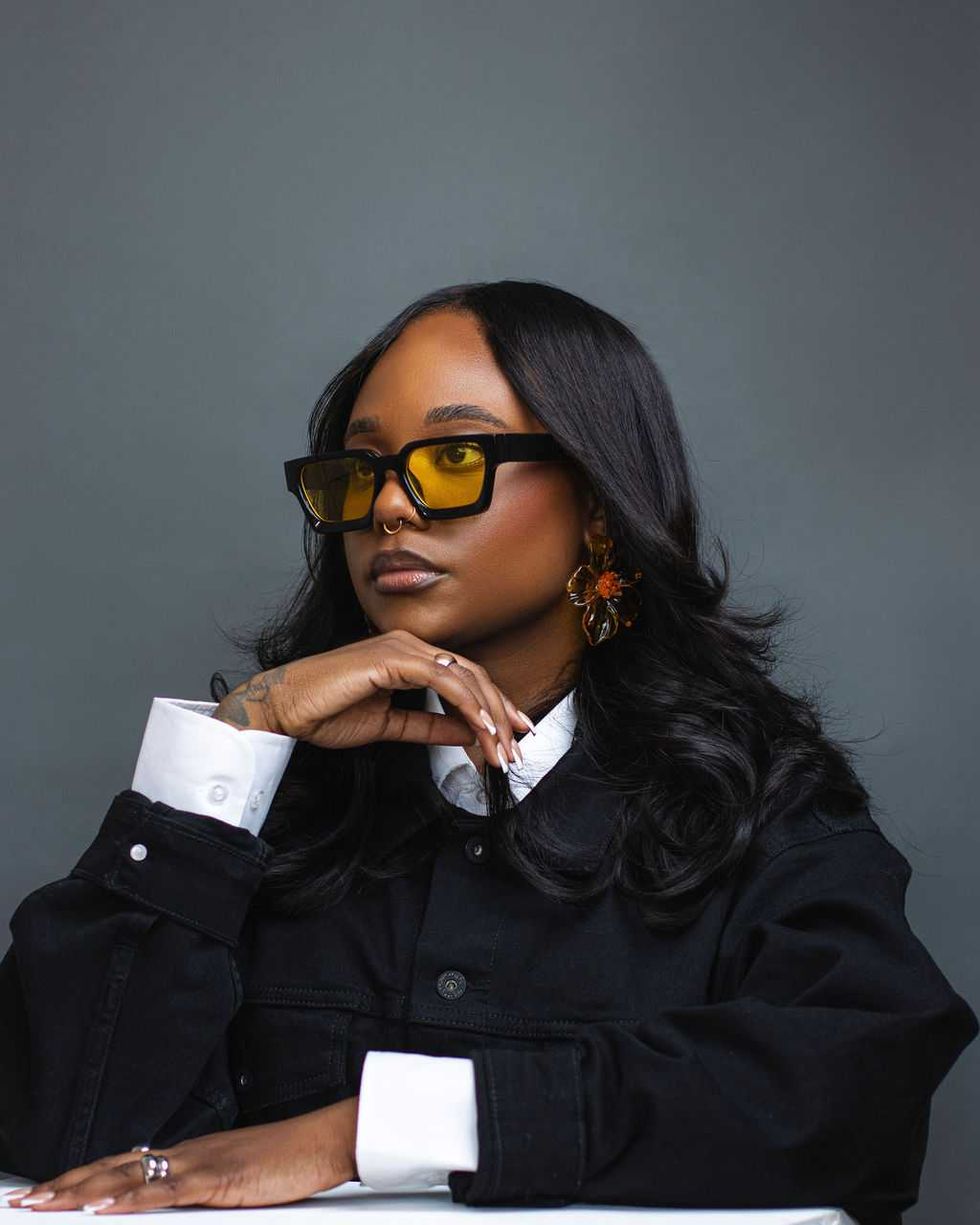
Artist and Founder of GROWN Media Kaya Nova
Courtesy
Kaya Nova
Her Handle: @thekayanova
Her Title: Artist and Founder, GROWN Media
Who's That It Girl: Kaya Nova is the artist-entrepreneur whose voice bridges melody and empowerment as the founder of GROWN Mag and GROWN Media. We celebrate her for turning her artistry into activism, creating music and experiences that honor womanhood, vulnerability, and the beauty of becoming your full self.
Her "Yes, And" Statement: "Yes, I'm multitalented and I'm powerful beyond measure."

Founder and CEO of Vineyard Icon Erin Goldson
Courtesy
Erin Goldson
Her Handle: @eringoldson
Her Title: Founder and CEO of Vineyard Icon
Who's That It Girl: We are inspired by Erin Goldson, brand marketer and founder of Vineyard Icon, a platform celebrating Martha’s Vineyard culture and creativity. She blends strategy and community building with effortless polish to turn ideas into impact.
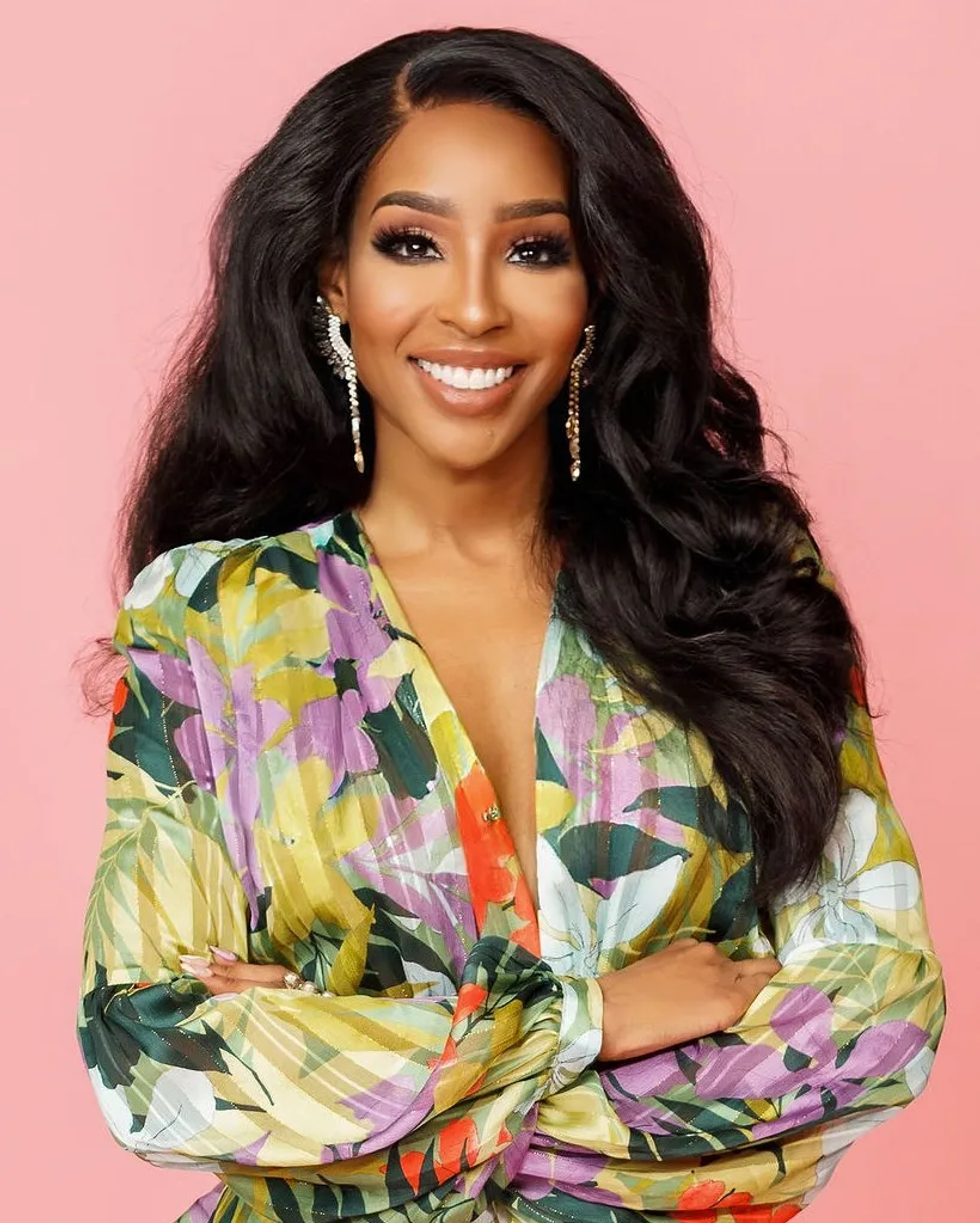
Founder and CEO, My Happy Flo Necole Kane
Courtesy
Necole Kane
Her Handle: @hellonecole
Her Title: Founder and CEO, My Happy Flo
Who's That It Girl: Necole Kane is a media mogul and entrepreneur who founded NecoleBitchie.com and xoNecole.com. She now leads feminine wellness brand My Happy Flo, advocating for women's hormonal health through plant-based supplements and holistic solutions.

FORVR MOOD Co-Founder and Content Creator Jackie Aina
Credit: Kirstin Enlow
Jackie Aina
Her Handle: @jackieaina
Her Title: FORVR MOOD Co-Founder and Content Creator
Who's That It Girl: A trailblazer who changed the face of beauty forever, Jackie Asamoah built a legacy on authenticity and advocacy. We love her for redefining luxury through inclusion and for reminding women everywhere that self-care is a radical, joyful act.
Her "Yes, And" Statement: "Yes, I'm owning my power and finding balance in it."
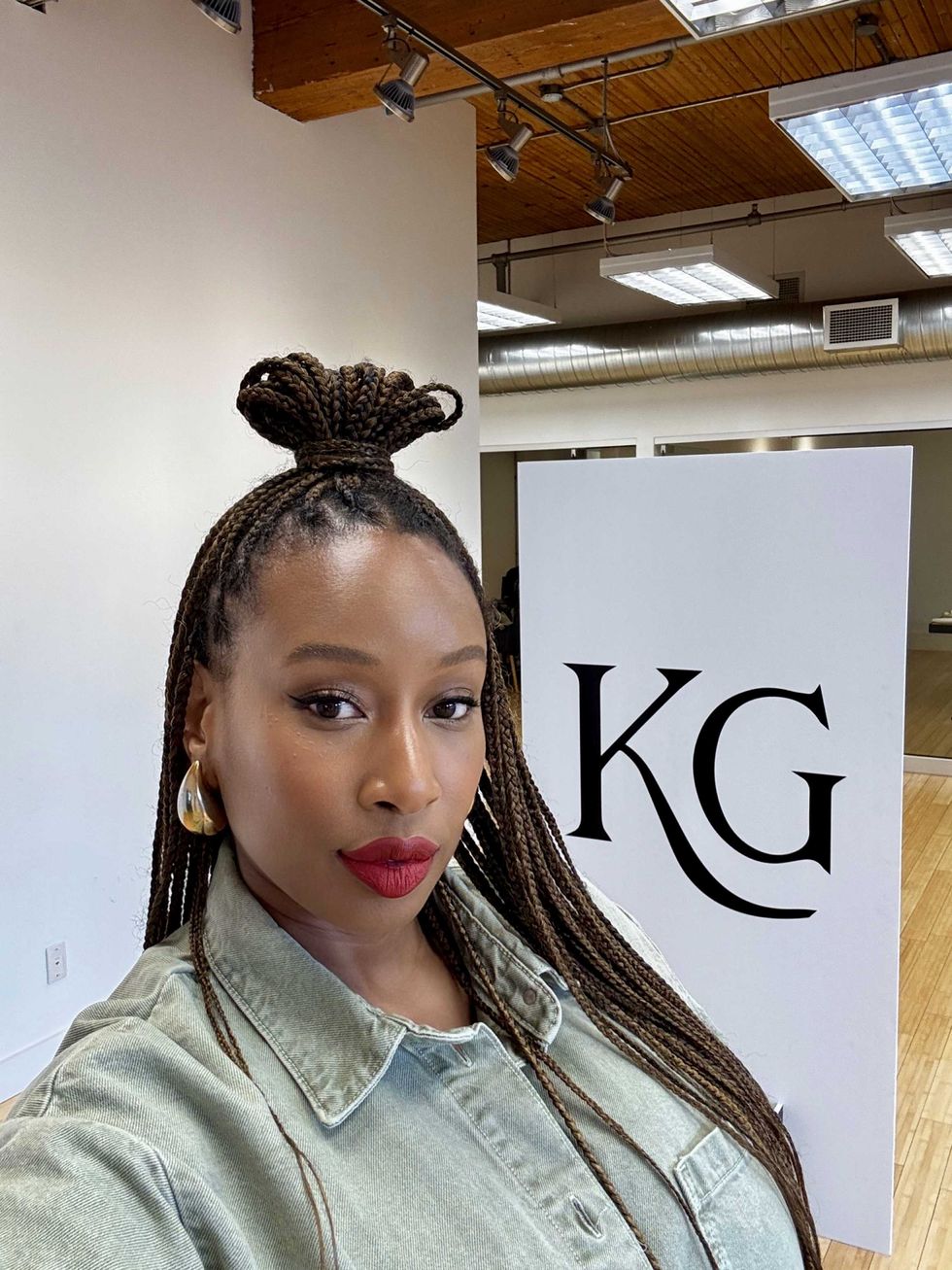
Founder and Investor Shannae Ingleton Smith
Courtesy
Shannae Ingleton Smith
Her Handle: @torontoshay
Her Title: Founder and Investor
Who's That It Girl: Shannae Ingleton Smith is President and Co-founder of Kensington Grey, an influencer agency representing 200+ creators. A former media sales executive, she now invests in creator-led startups, including 12PM Studios.
Her "Yes, And" Statement: "Yes, I’m breaking ceilings and expanding the table."

Founder of LORVAE De'arra Taylor
Courtesy
De'arra Taylor
Her Handle: @dearra
Her Title: Founder of Fashion Brand LORVAE
Who's That It Girl: We celebrate De'arra Taylor as the founder and CEO of LORVAE, an eyewear brand built on reinvention, confidence, and bold individuality. Her creative direction turns sunglasses into statements and community into a lifestyle.
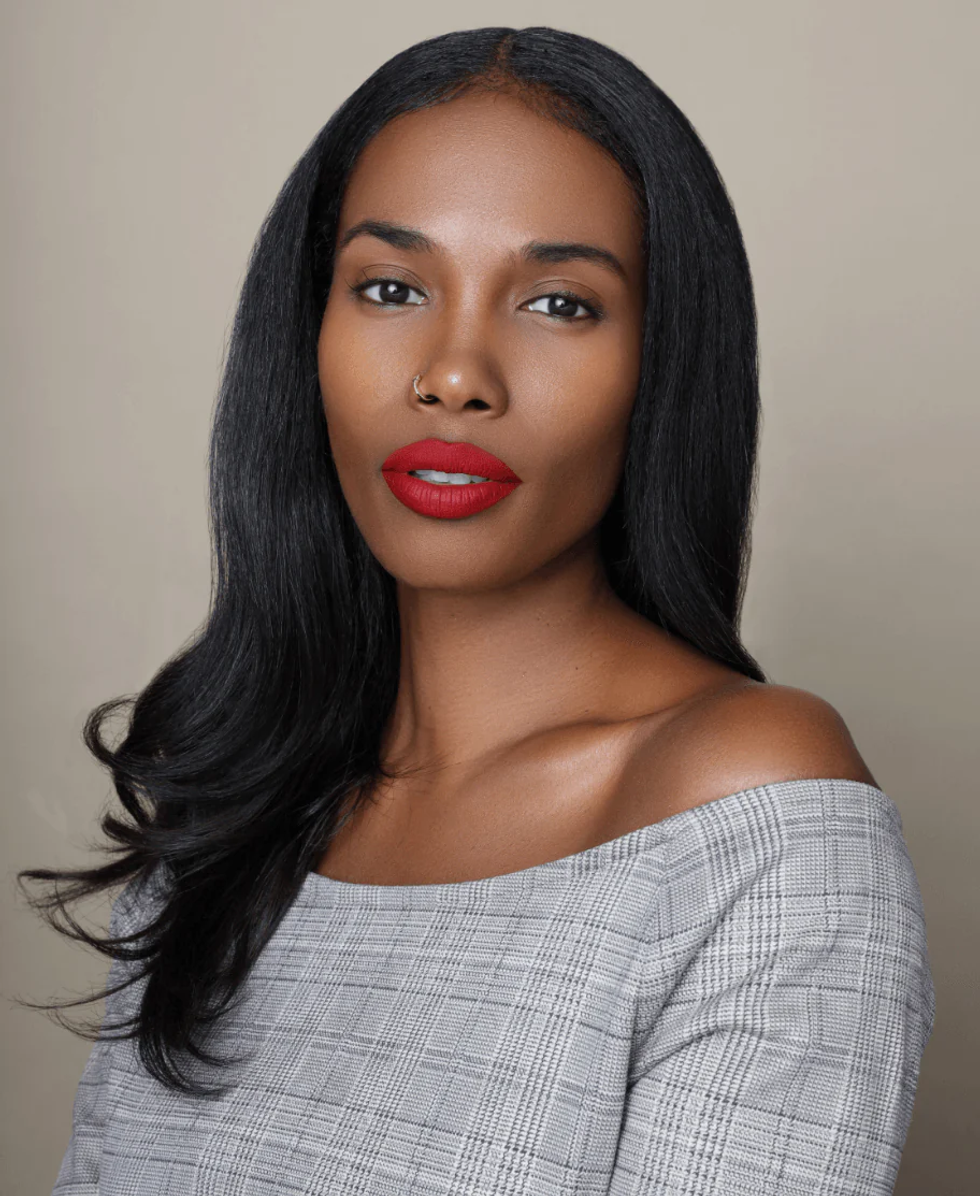
Founder of The Lip Bar Melissa Butler
Courtesy
Melissa Butler
Her Handle: @melissarbutler
Her Title: Founder of The Lip Bar
Who's That It Girl: Melissa Butler transformed The Lip Bar from a kitchen concept into a multimillion-dollar movement. We honor her for challenging industry norms and proving that boldness, beauty, and business brilliance can coexist unapologetically.
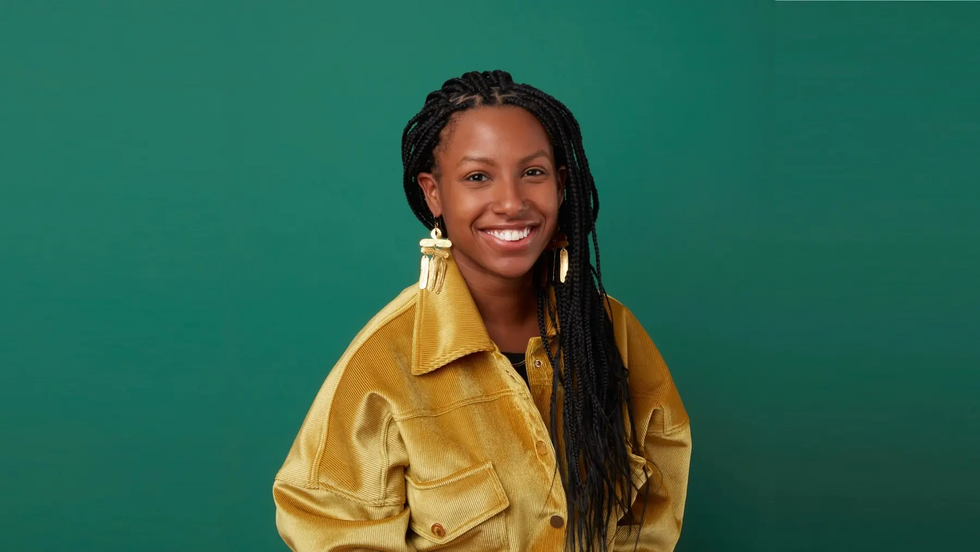
Director of Cultural Strategy & Innovation Denetrias Charlemagne
Courtesy
Denetrias “Dee” Charlemagne
Her Handle: @dcharlemagne
Her Title: Director of Cultural Strategy & Innovation, Walmart
Who's That It Girl: A powerhouse behind purpose-driven partnerships, Denetrias Charlemagne bridges culture and commerce at Walmart with grace and innovation. We honor her for amplifying representation in retail and using her platform to build spaces where authenticity and excellence thrive.

Chief Brand Officer at Unrivaled Kirby Porter
Courtesy
Kirby Porter
Her Handle: @kirbyporter
Her Title: Chief Brand Officer, Unrivaled
Who's That It Girl: Strategic, visionary, and driven by impact, Kirby Porter is building the future of athlete branding. We’re inspired by her as the founder of New Game Labs and Chief Brand Officer at Unrivaled, showing that strategy can be soulful and sport can be storytelling.

Founder and CEO of EveryStylishGirl Nana Agyemang
Courtesy
Nana Agyemang
Her Handle: @itsreallynana
Her Title: Founder and CEO of EveryStylishGirl
Who's That It Girl: A journalist turned founder, Nana Agyemang built EveryStylishGirl to amplify Black women in media. We love her for opening doors, building pipelines of opportunity, and using her voice to change the face of modern storytelling.
Her "Yes, And" Statement: "Yes, I'm a boss and I'm still soft."

Vice President of Content at ESSENCE Nandi Howard
Courtesy
Nandi Howard
Her Handle: @itsnandibby
Her Title: Vice President of Content, ESSENCE
Who's That It Girl: We are inspired by Nandi Howard, Vice President of Content and Editorial at ESSENCE. Her leadership elevates Black culture with clarity and celebration and shapes the stories and standards that move audiences.

Founder of Sisters In Media Oladotun Idowu
Courtesy
Oladotun Idowu
Her Handle: @ola_idowu
Her Title: Founder of Sisters In Media
Who's That It Girl: We celebrate Oladotun Idowu, entertainment marketing leader at Campari Group and founder of Sisters in Media, for bridging brands and culture while championing women of color across media. Strategy and purpose guide her work.
Her "Yes, And" Statement: "Yes I'm walking into rooms with boldness and grace knowing that God has way more in stored for me."

Founder of Fortune & Forks Krystal Vega
Courtesy
Krystal Vega
Her Handle: @krystalvega
Her Title: Founder of Fortune & Forks, Multimedia
Who's That It Girl: Krystal Vega’s work lives at the intersection of innovation and influence. We celebrate her as a next-gen entrepreneur shaping digital spaces where women of color lead confidently, create fearlessly, and build legacies beyond the screen.
Her "Yes, And" Statement: "Yes, I'm that girl and so are you."
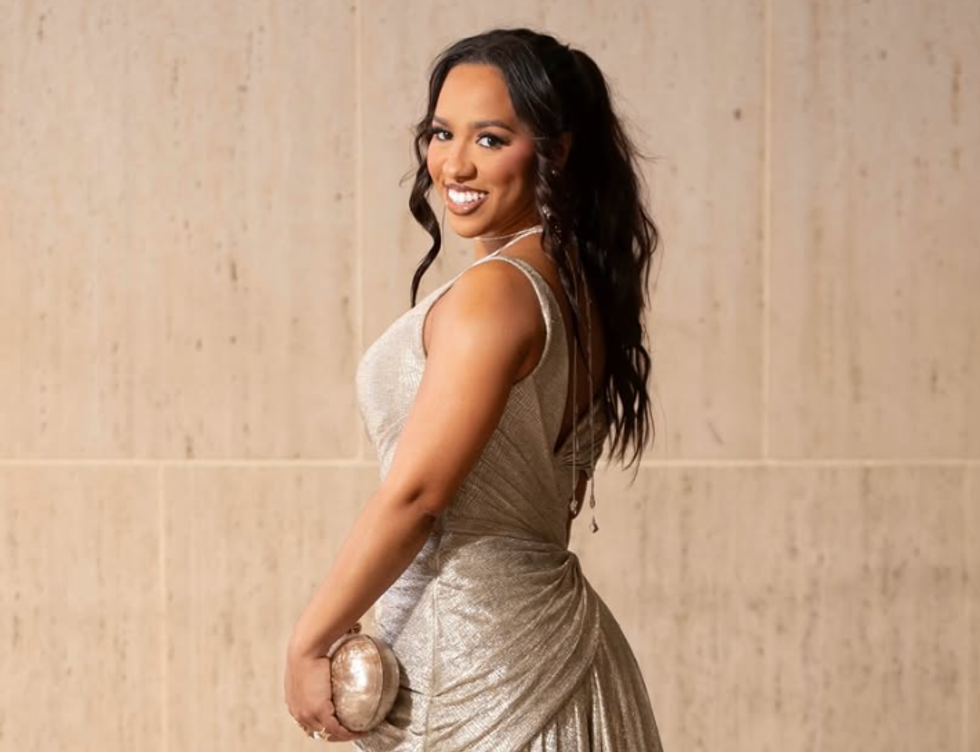
Founder of Fortune & Forks Naomi Wright
Courtesy
Naomi Wright
Her Handle: @naomiwrighttt
Who's That It Girl: Naomi Wright leads with style, purpose, and power. We’re inspired by her for building platforms like Fortune & Forks that merge beauty, business, and bold self-expression, proving that influence can be both impactful and intentional.
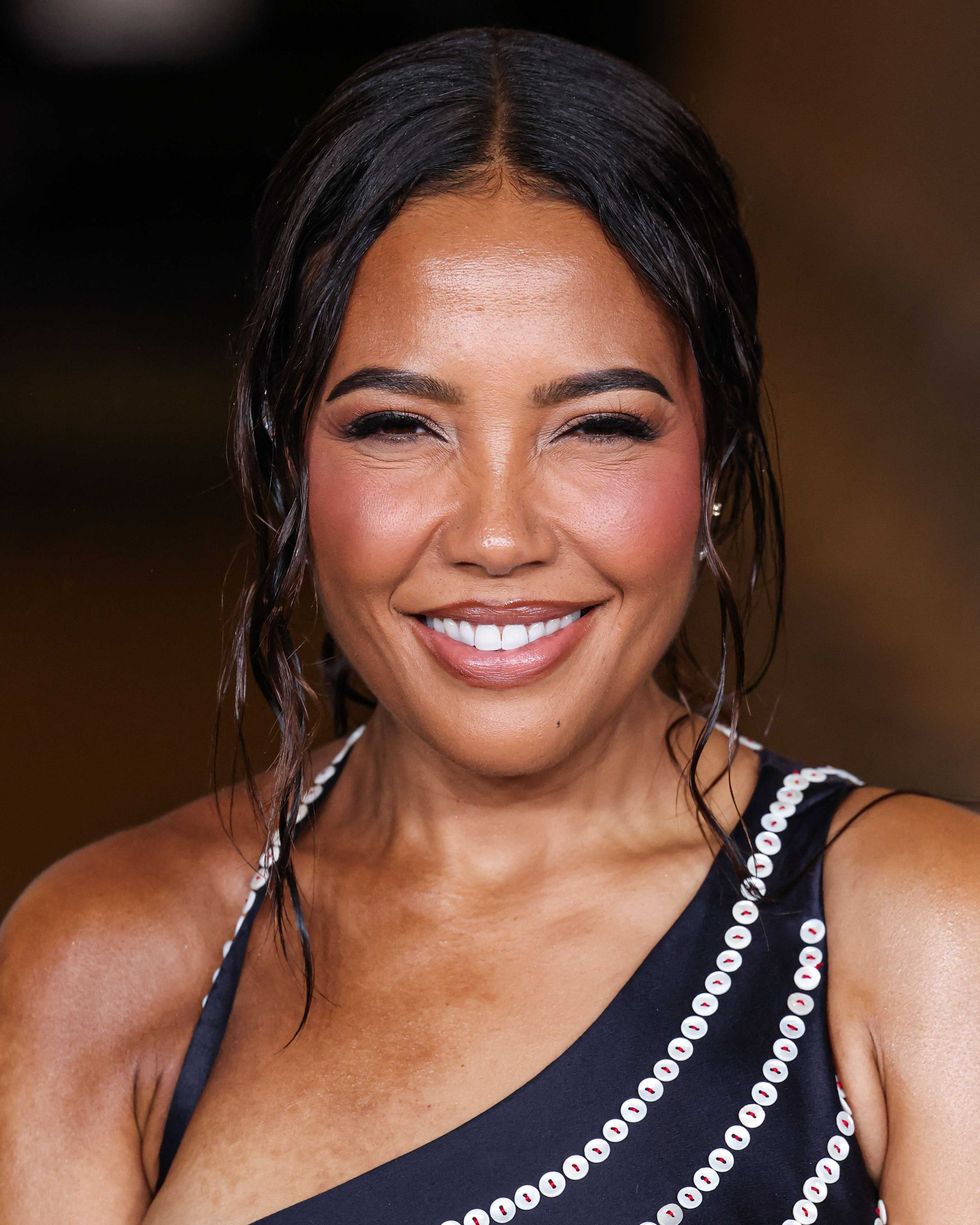
Entrepreneur and Podcast Host Emma Grede
Shutterstock
Emma Grede
Her Handle: @emmagrede
Her Title: Entrepreneur and Podcast Host
Who's That It Girl: Emma Grede is CEO and co-founder of Good American, and founding partner of SKIMS. She's a podcast host and the first Black female investor on ABC's Shark Tank.
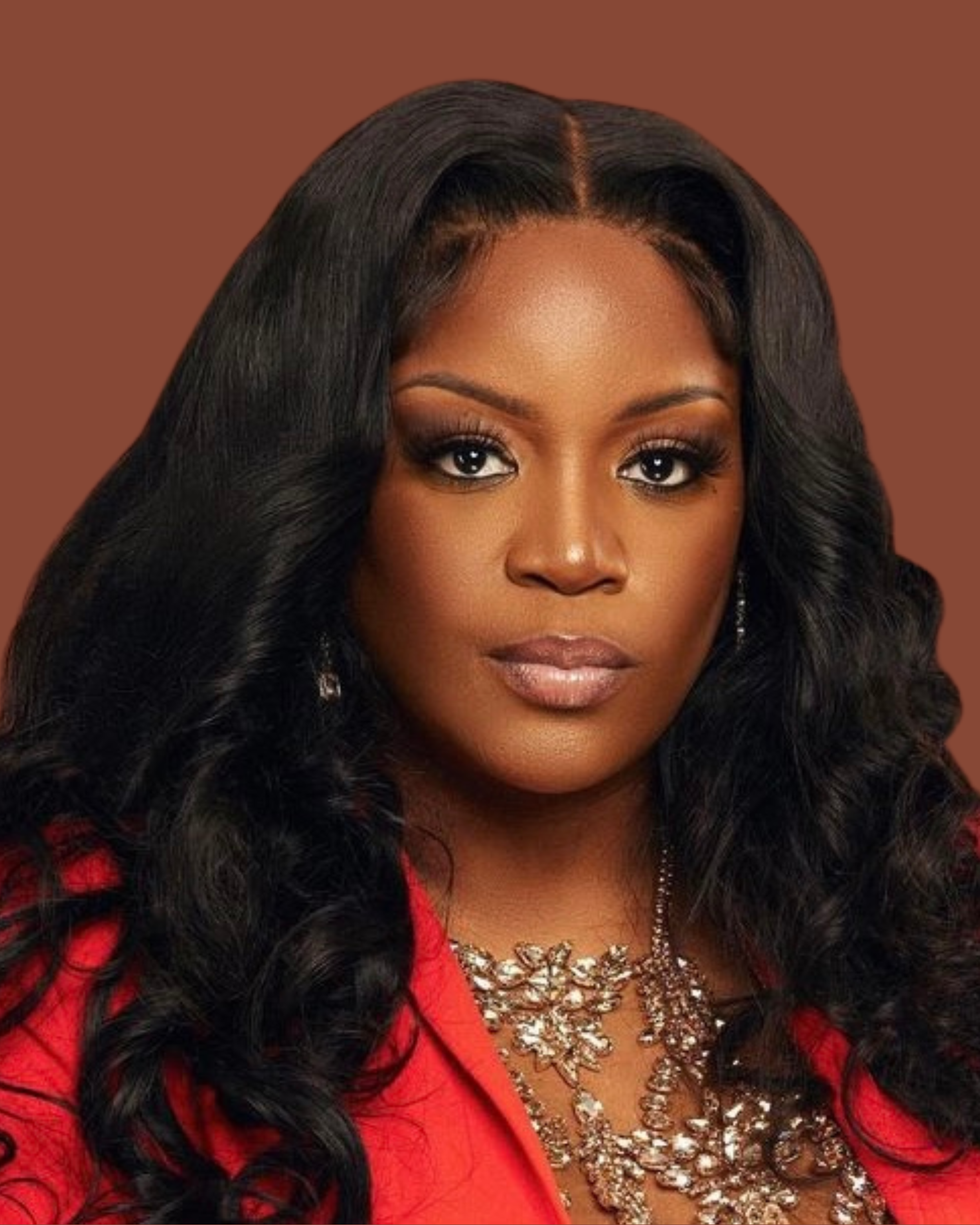
CEO and Founder of TFNA Entertainment & Sports Management Kia Brooks
Courtesy
Kia Brooks
Her Handle: @kiajbrooks
Her Title: CEO and Founder of TFNA Entertainment & Sports Management
Who's That It Girl: Entrepreneur and mother, Kia J. Brooks leads TFNA Talent Agency, representing top athletes and creatives. She’s known for breaking barriers, negotiating record NIL deals, and empowering others to build generational wealth.

Sports & Entertainment Brand Manager Des Dickerson
Courtesy
Des Dickerson
Her Handle: @itsurdestinee
Her Title: Sports & Entertainment Brand Manager and Media Strategist
Who's That It Girl: Des Dickerson is a sports and entertainment brand manager and media strategist who works with top athletes and entertainers to elevate their platforms. She is recognized for creating innovative partnerships and driving visibility in sports and entertainment.
Her "Yes, And" Statement: "Yes, I build opportunities for athletes and entertainers and I transform them into lasting influence."
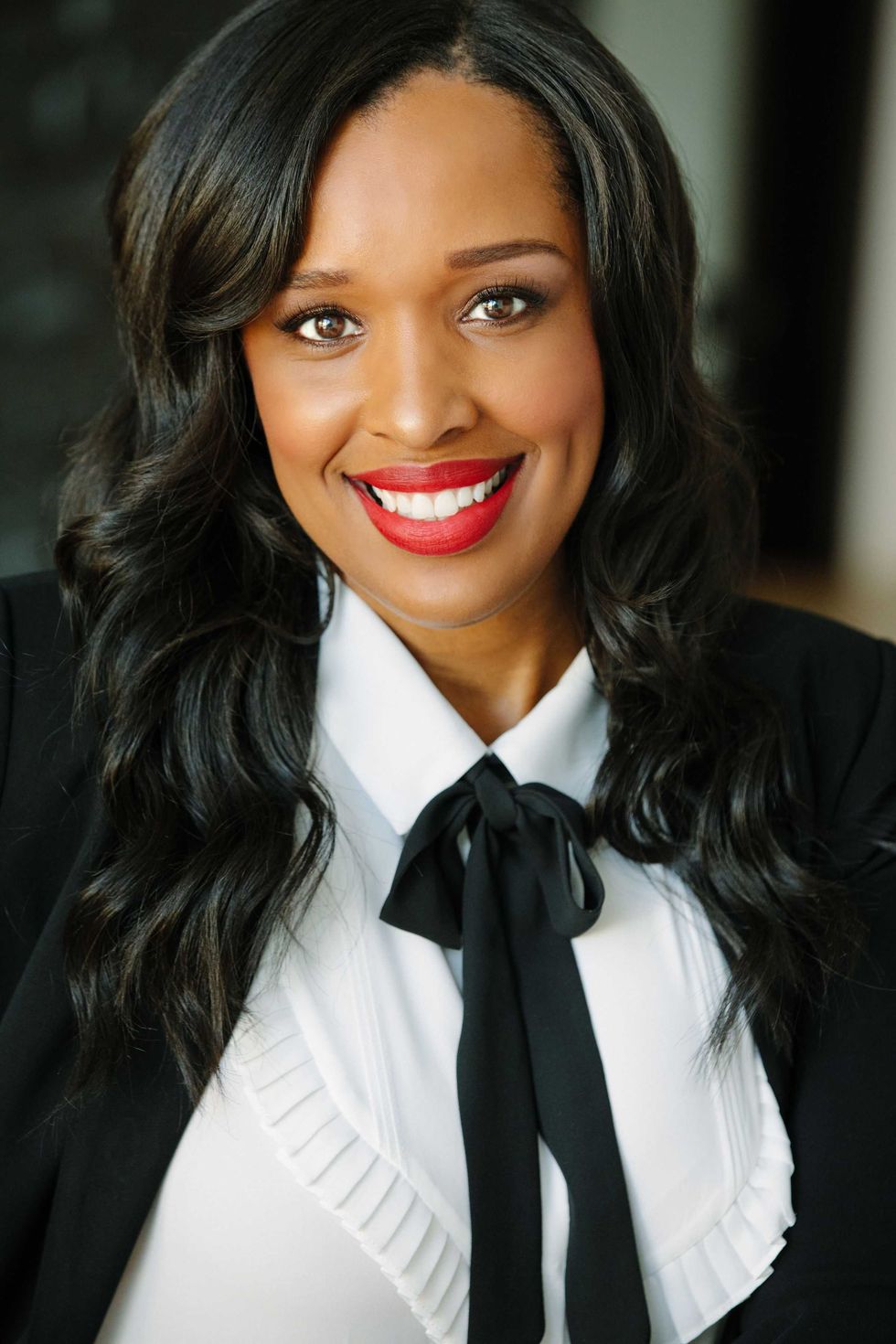
President of Collective Edge Management Shayla Cowan
Courtesy
Shayla Cowan
Her Handle: @shayla_pc
Her Title: President, Collective Edge Management
Who's That It Girl: Shayla Cowan is an award-winning producer and President of Collective Edge. She's produced blockbuster films including Girls Trip and Beast, championing boundary-pushing storytellers and innovative artistry in entertainment.

Co-Founder & CEO of Fearless Fund
Courtesy
Arian Simone
Her Handle: @ariansimone
Her Title: Co-Founder & CEO, Fearless Fund
Who's That It Girl: Arian Simone champions women of color in venture capital. She advocates for economic justice, investing globally in women entrepreneurs and addressing funding disparities rooted in racism and sexism through resilient, purpose-driven leadership.
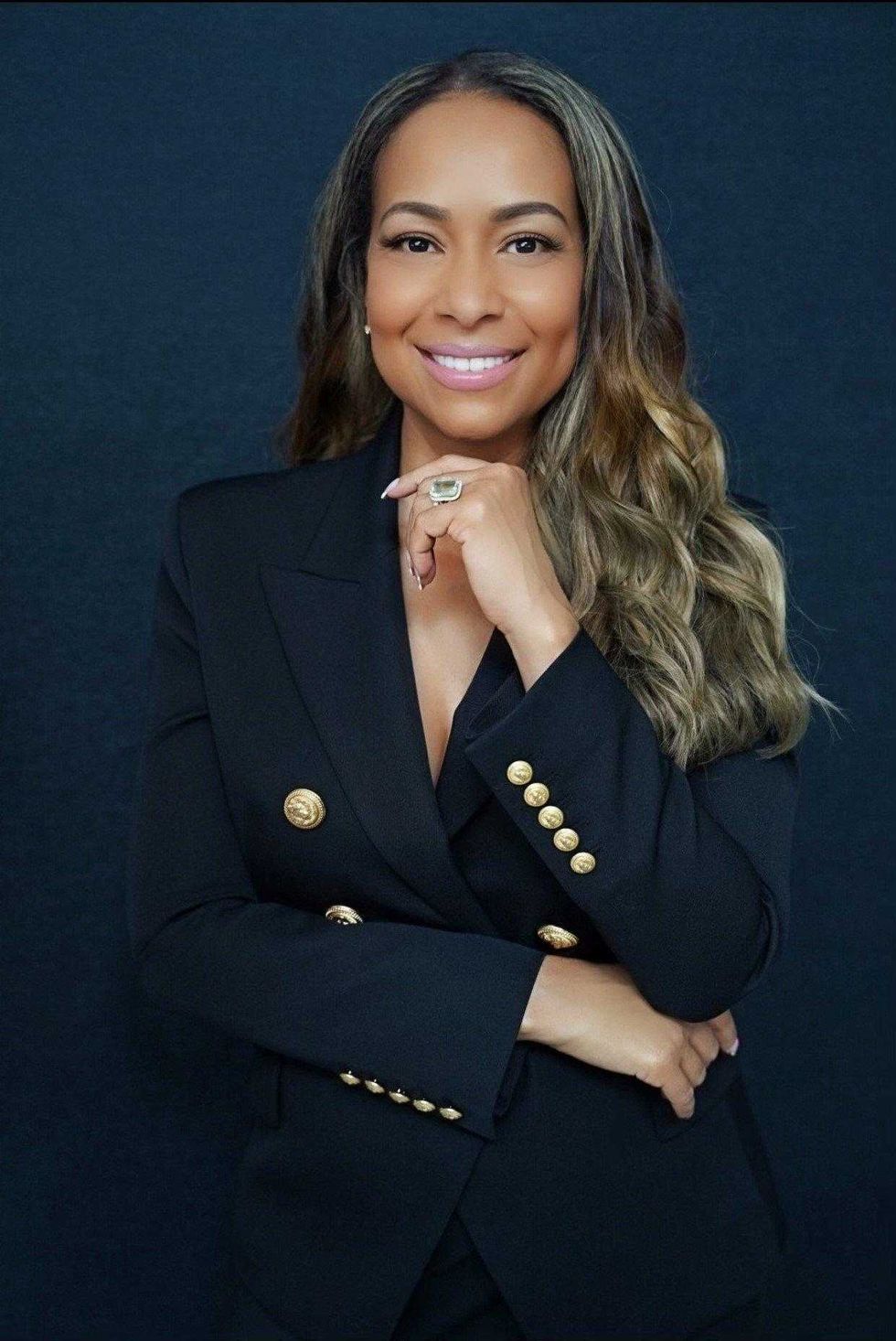
Founder of Global State of Women and Seed, Valeisha Butterfield
Courtesy
Valeisha Butterfield
Her Handle: @valeisha
Her Title: Founder of Global State of Women and Seed
Who's That It Girl: Valeisha Butterfield Jones is a globally recognized leader in tech, entertainment, and politics. This year, she created the Global State of Women platform, providing emergency grants to women facing high unemployment rates.
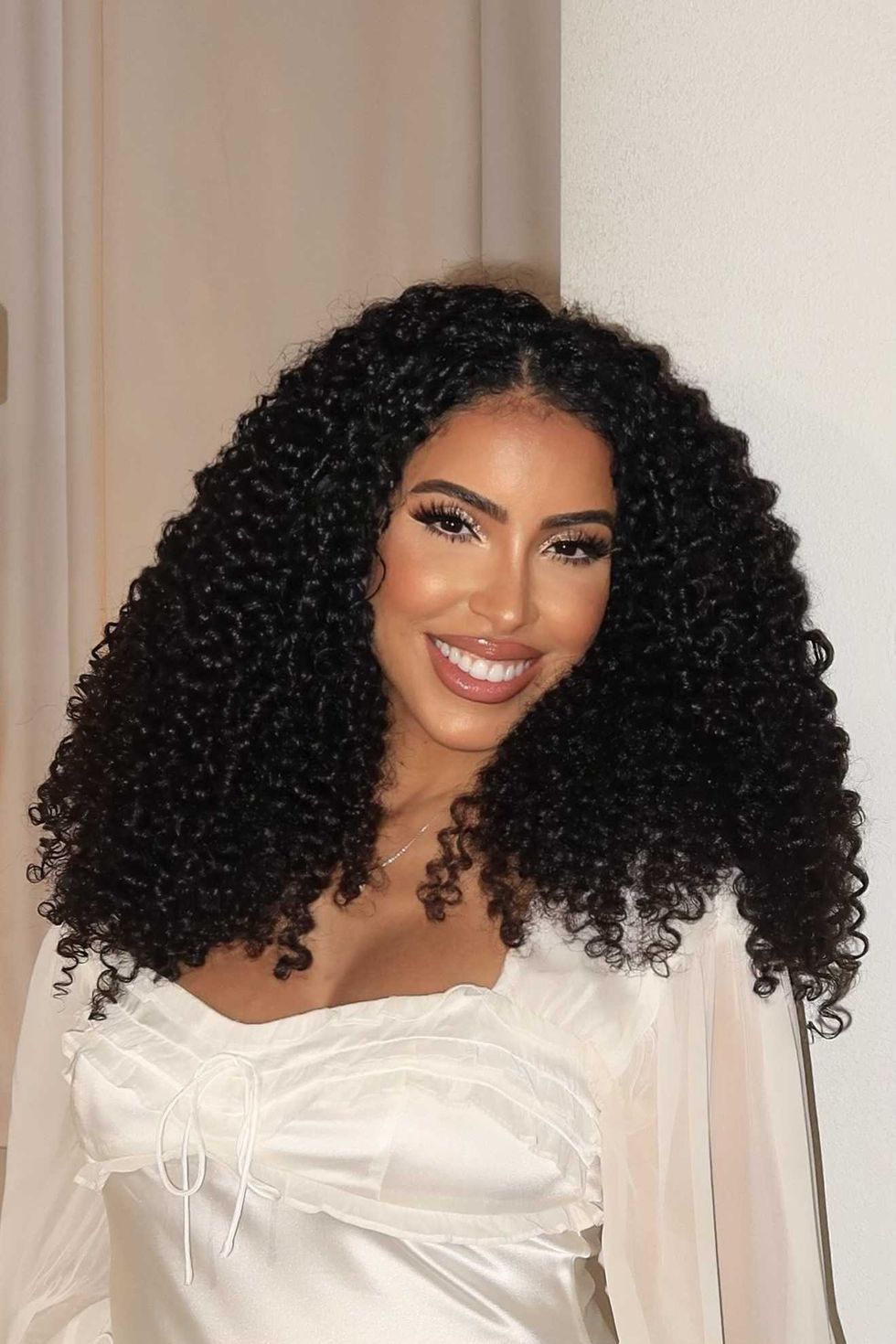 Founder and Content Creator Ava PearlCourtesy
Founder and Content Creator Ava PearlCourtesyAva Pearl
Her Handle: @avapearl
Her Title: Founder and Content Creator
Who's That It Girl: Ava Pearl is the founder of Curly Culture and Curly Con LA, initiatives that champion natural hair and foster community within the beauty industry. As a beauty and lifestyle content creator, she is dedicated to creating impactful content that inspires authenticity, confidence, and self-expression.
Her "Yes, And" Statement: "Yes, I’m rooted in authenticity and rising with purpose."
Now that you've met the ladies about their business, see who else made our list. Tap into the full It Girl 100 Class of 2025 and meet all the women changing game this year and beyond. See the full list here.
Featured image by xoStaff









